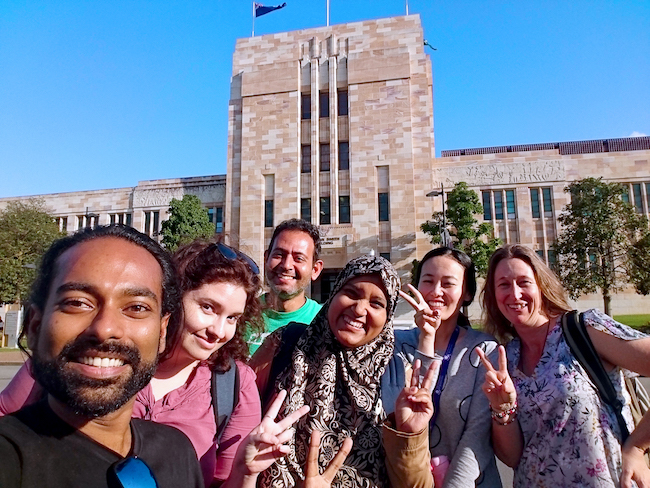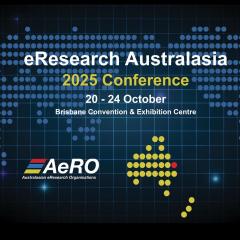
- Apply now: UQ Graduate Digital Research Fellowship 2019–2020
GDRF acknowledged as good practice in ARC literature review on humanities
- International pedagogy conference accepts UQ Fellow’s abstract
Apply now: UQ Graduate Digital Research Fellowship 2019–2020
Applications are now open for the third round of UQ’s Graduate Digital Research Fellowship.
Fellows will be confirmed research students who will spend one year honing their digital skills and working with local and international digital research practitioners to create a scholarly work that uses digital research methods, such as digital publication, software or data sets.
Those from Humanities and Social Sciences (HASS) disciplines across UQ, including those outside of the Faculty of HASS, are encouraged to apply.
The fellowship, administered by UQ’s Graduate School, is designed to prepare research students to academic or non-academic careers in digital scholarship.
RCC’s Marco Fahmi developed the program, launched last year, with the Digital Scholars’ Hub and the Faculty of HASS. There are currently 10 fellows.
The fellows meet regularly at RCC and have access to digital research support staff — such as Marco Fahmi, RCC’s Manager, Digital HASS — who can advise and collaborate on their digital projects.
Expressions of interest are sought from current higher-degree research HASS students who are confirmed, or will be prior to August 2019.
Expressions of interest in the fellowship close Saturday, 15 June 2019. The fellowship period is from August 2019 - July 2020.
More information (including the expression of interest form).
GDRF to count towards scholarship extension
UQ’s Graduate Digital Research Fellowship (GDRF) has recently been added to a points-based system for a six-month scholarship stipend extension for PhD students.
The GDRF will count as five points towards the 30 points of Career Development Framework (CDF) experiences and sessions needed for the scholarship extension.
The UQ Career Development Scholarship Extension (CDSE) supports PhD candidates who have engaged in the UQ Graduate School Career Development Framework in a significant and sustained manner throughout candidature.
The optional six-month stipend is to enable the completion of activities that build the transferable and professional skills of PhD candidates.
The aim of the scholarship is to help a PhD student prioritise their career development, while managing progress towards completion of their PhD.
GDRF acknowledged as good practice in ARC literature review on humanities
An Australian Research Council-funded examination of Australia’s humanities research workforce has highlighted UQ’s Graduate Digital Research Fellowship (GDRF) as an example of good practice.
The ‘Future Humanities Workforce’ literature review by Dr Iva Glisic mentions GDRF as an Australian initiative that is “aimed at supporting researchers to develop knowledge and proficiency in tools, methods and best practices for digital research.” (See page 23 of the literature review.)
The literature review acknowledges that digital literacy training is needed for humanities and social sciences researchers to operate within an increasingly digital working environment.
The Future Humanities Workforce Project is funded through the ARC’s Learned Academies Special Projects Scheme, which invests in the future of Australian research by providing funds to support strategic disciplinary initiatives.
International pedagogy conference accepts UQ Fellow’s abstract
One of UQ’s new Graduate Digital Research Fellows will present her research at the international Association for Visual Pedagogies (AVP) conference in Melbourne, 17–18 June 2019.
AVP has accepted Maria Ejlertsen’s abstract on qualitative educational research and its use of open-ended visual data analysis
Maria’s abstract is part of her Graduate Digital Research Fellowship project to build an interactive Web experience that reflects on how the school environment shapes youth identity by allowing audiences to view the school environment from different perspectives and create their own narratives.
She is based in UQ’s School of Education and joined the fellowship program earlier this year.
Marco Fahmi, RCC’s Manager of Digital Humanities and Social Sciences projects, developed the program with UQ’s Digital Scholars’ Hub and the Faculty of Humanities and Social Sciences.
Fellows are confirmed research students who spend one academic year honing their digital skills and working with local and international digital research practitioners to create a scholarly work that uses digital research methods, such as digital publication, software or data sets.



